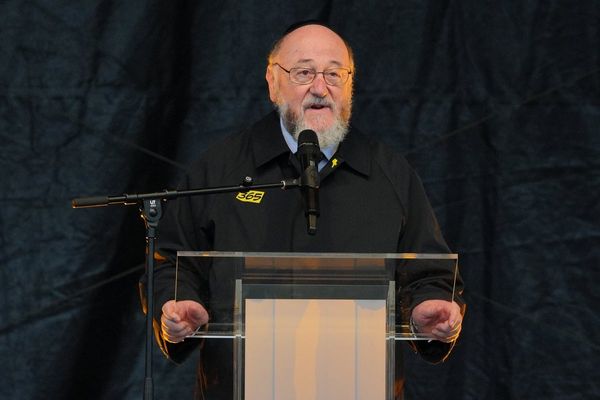
Iran says it launched a barrage of missiles at Israel in response to the assassinations of senior Hezbollah, Hamas and Iranian officials, sending Israelis rushing to bomb shelters and raising fears of all-out war in the region.
Alarms sounded across Israel and explosions could be heard in Jerusalem and Tel Aviv during the attack late on Tuesday.
Israeli military spokesperson Daniel Hagari said there were no reports of casualties and that the army does not see “any more threats in our airspace”. He said in a video message that people in Israel were safe to leave shelters.
Israel’s emergency services said at least two people sustained light injuries “from shrapnel in the Tel Aviv area”.
The Palestinian news agency Wafa, citing the civil defence, said a 38-year-old Palestinian man died from shrapnel wounds in Jericho in the eastern occupied West Bank.
“A Palestinian worker in Jericho was killed when pieces of a rocket fell from the sky and hit him,” Jericho governor Hussein Hamayel told the AFP news agency.
Other local media outlets identified him as Sameh al-Assali, and said he was originally from the besieged Gaza Strip.
Iran’s Islamic Revolutionary Guards Corps (IRGC) said the missile attack on Israel was a response to the killing of Hezbollah chief Hassan Nasrallah and the IRGC commander Abbas Nilforoushan last week, as well as that of the Hamas leader Ismail Haniyeh earlier this year, Iran’s Fars news agency reported.
“In response to the martyrdom of Ismail Haniyeh, Hassan Nasrallah and Nilforoushan, we targeted the heart of the occupied territories,” the IRGC said in a statement.
It said its missile attack targeted “three military bases” in the Tel Aviv area.
Earlier, the IRGC said it launched tens of missiles at Israel, and that if Israel retaliated, Tehran’s response would be “more crushing and ruinous”.
Iran’s state television said 80 percent of the missiles launched at Israel hit their targets.
The Israel military, meanwhile, said a “large number” of missiles had been intercepted.
Speaking to reporters, Hagari said the attack was serious and will have consequences “in a timely manner”.
A senior Iranian official told the Reuters news agency that the order to launch missiles at Israel was made by the country’s Supreme Leader Ayatollah Ali Khamenei. Khamenei remains in a secure location, the senior official added.
‘We absolutely need a ceasefire’
The United States said its forces were ready to provide “additional defensive support” to Israel after helping protect it from the Iranian missile attack.
“Our forces remain postured to provide additional defensive support and to protect US forces operating in the region” after “defending against Iranian-launched missiles targeting Israel”, a US defence official said on condition of anonymity.
US Secretary of State Antony Blinken said the attack was “totally unacceptable” and should be condemned by the entire world.
“Initial reports suggest that Israel, with the active support of the United States and other partners, effectively defeated this attack,” Blinken told reporters.
Iranian-backed Iraqi armed groups meanwhile said US bases in Iraq and the region will be targets if the US joins any response to Iranian strikes on Israel or if Israel uses Iraqi airspace against Tehran.
The firing of missiles came after Israeli troops launched ground raids into Lebanon, in the biggest escalation of regional warfare since fighting erupted in Gaza last October.
Al Jazeera’s Dorsa Jabbari, reporting from the Lebanese capital Beirut, said some people there were celebrating Iran’s missile attack.
“We’ve heard over the last 20 since minutes Iran’s unprecedented attack on Israel, nonstop gunfire and fireworks being set off across the capital,” Jabbari said.
In nearby Jordan, the civil aviation authority said air traffic was temporarily suspended following the attack.
The country’s Public Security Directorate said its air defences intercepted missiles and drones.
“The Royal Jordanian Air Force and air defence systems responded to a number of missiles and drones that entered Jordanian airspace,” a statement said.
United Nations Secretary-General Antonio Guterres condemned the “broadening conflict in the Middle East”.
Slamming “escalation after escalation” in the region, Guterres said in a statement: “This must stop. We absolutely need a ceasefire.”







